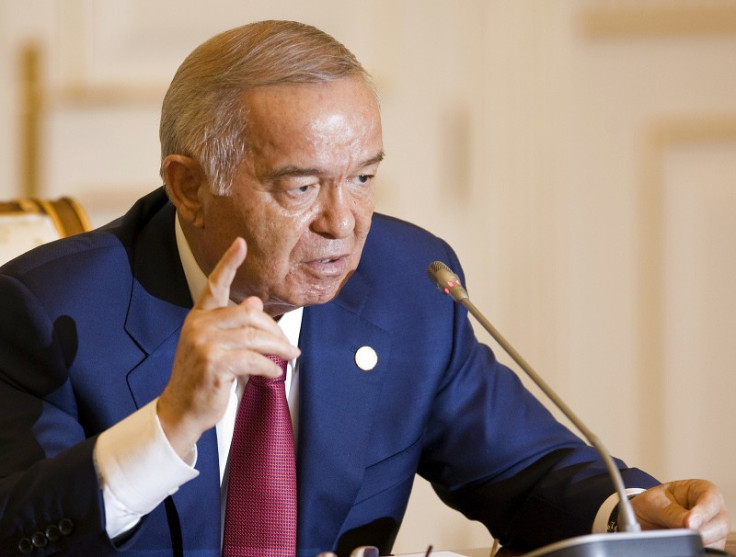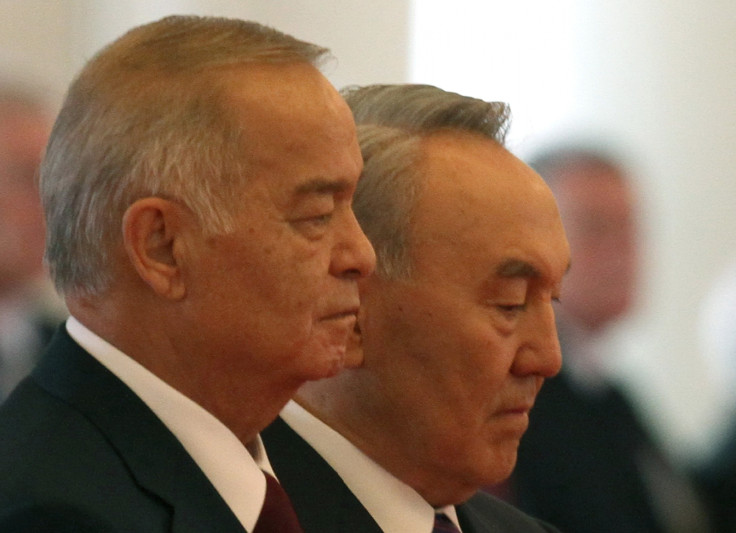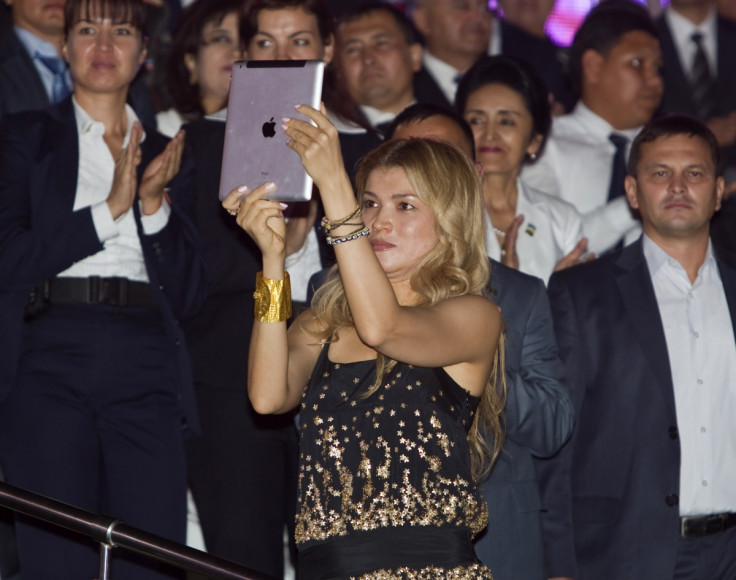Uzbekistan elections: Why Islam Karimov is the unbeatable candidate

There are four candidates standing in the Uzbekistan presidential elections on 29 March, but they all agree on one thing: that the ruling dictator Islam Karimov should win.
Karimov, 77, has been Uzbekistan's president since 1990. Amid reports of torture, forced labour in the country's lucrative cotton industry, violent crackdowns on dissenting activists and journalists, among other abuses, Human Rights Watch describes Uzbekistan's record under Karimov as "atrocious".
There are thought to be as many as 12,000 political and religious prisoners in Uzbekistan, the victims of state persecution in a society where individuals' beliefs are policed aggressively - and often violently. The government has still not acknowledged its role in the 2005 slaughter by police of hundreds of protesters in the city of Andijan.
At the last presidential election in 2007, Karimov received 90.76% of the vote off the back of a turnout of 90.6%. Or so the Uzbekistan elections office says. Elections observers for the Organisation for Security and Cooperation in Europe (OSCE) were seriously unimpressed by what they saw.
"While there were four candidates, including one woman and one candidate nominated by an initiative group of voters, the voters were nonetheless left without a real choice as all contestants publicly endorsed the policies of the incumbent president, Mr Islam Karimov," said the OSCE.
"Legal and administrative obstacles prevented political movements representing alternative views from registering as political parties or initiative groups, thereby precluding them from fielding presidential candidates."

The OSCE, which has also observed the country's sham parliamentary elections, will be sending observers again to Uzbekistan. But there is no hope that anything will have changed. The latest at the end of 2014 "were competently administered but lacked genuine electoral competition and debate," concluded the OSCE.
Annette Bohr, associate fellow of the Russia and Eurasia programme at international affairs thinktank Chatham House, told IBTimes UK that the state of civil society in Uzbekistan is "dreadful".
"It's well recognised to be horrible," she said. "Hence we've got a virtual vote taking place on an opposition website based in Paris. The leader is currently an oppositionist in the US. And the opposition is staging this essentially to show that this is election is a fraud."
The country's GDP, adjusted for purchasing power parity, was $112.6bn in 2013, ranking it 70th in the world. Broken down by sector, 48.7% is services, 32.2% is industry and 19.1% is agriculture. Its main exports are energy (natural gas in particular), cotton and gold. Its largest trading partner is China, which accounts for 21.2% of Uzbeki exports. Its currency is the Uzbekistani soum, of which one dollar will buy you 2,484. The population is 29 million strong.
Source: CIA World Factbook
That opposition leader is called Bahodir Choriev of the Unity Party, who lives in US exile and is the son of an Uzebkistani human rights campaigner who died in prison. Ten other candidates on top of Choriev have registered for this alternative virtual vote.
None of the state-sanctioned candidates in the official election criticise the current state of affairs in Uzbekistan, despite 17% of its people living below the poverty line and the history of serious human rights abuses under the Karimov administration.
"There's currently no choice. The three contenders are rather openly supporting the president and this is to be expected. This is the system as we have seen it up to now," Bohr said.
Instead, their manifestos speak of furthering the current positive development of the country. Essentially, they argue the case for making things even better, because they're not allowed to suggest Karimov's reign has been at all bad. Each manifesto is a manifesto for continuity, implying that Karimov should remain in place as Uzbek president.
Those four candidates are:
Hatamjhon Abdurahmonovich Ketmonov, 46, is a former teacher and government education official. He's standing for the People's Democratic Party of Uzbekistan and he wants to to "further improve the welfare of the population".
Akmal Kholmatovich Saidov, 57, is from the Democratic Party of Uzbekistan, also called "Milly Tiklanish". He has held several senior positions in the public sector, including "director of the Institute of World Problems under the President of the Republic of Uzbekistan", Permanent Representative of the Republic of Uzbekistan in UNESCO and director of the National Centre for Human Rights. He promises to "further promote our country on the path of renewal and social progress".
Nariman Madjitovich Umarov, 63, is a hydrogeology engineer by training and worked for over two decades in the country's Science Research Institute. More recently he was chairman of the State Committee for Nature Protection of the Republic of Uzbekistan.
"Recognizing and appreciating all that is done for the years of independence, we strive to make a contribution to the further development of our country and, therefore, enter into the election campaign with our program," he says.
Islam Abduganievich Karimov, 77, has been president since 1990, when the Soviet Union, of which Uzbekistan was a part, broke down. In the USSR, Karimov held a number of official roles in the Uzbek satellite state, including minister of finance. Since becoming president, he has led with an iron fist and, by failing to allow democracy to flourish, cemented his own dictatorship.
Karimov has also fallen out with his own family. His daughter Gulnara Karimova, 42, has been put under house arrest after allegations emerged of corruption in the telecoms sector, worth $1bn, that she facilitated through bribes, money laundering and embezzlement from Uzbek national funds.
Karimova, who was once tipped to be her father's successor, denies all the charges and cries foul against her father, saying the claims are politically-motivated because of a power struggle within her family ahead of the coming elections.

Some say Karimov should not be standing at all because there is a limit in the Uzbekistan constitution on the number of terms a president can serve: two lots of five years.
"Despite any legal acrobatics the government may use to justify another presidential term for Islam Karimov, there can be absolutely no question that his standing for a fourth term violates not only the letter, but also the spirit of Uzbekistan's constitution," Steve Swerdlow, Central Asia researcher at Human Rights Watch, told EurasiaNet.org.
Bohr of Chatham House told IBTimes UK that "if it wasn't such a sad situation it would be quite funny, the way in which they try to justify his continued terms".
Karimov has sought to legitimise his regime by seeking closer relations with the west. Uzbekistan, which has an 88% Muslim population, became a Nato ally in the war in Afghanistan. And it has bilateral relations with the EU, despite its human rights violations.
The reality is that Karimov will snatch another term as president and the Uzbekistanis will be lumbered for another five years, unless he dies - and there are rumours of ill health after a two week absence from public - before the next set of elections.
But Bohr said Karimov is "a hostage of the political system". This is because the corrupt political, economic and business elite of the country rely on him for support to further their interests, as he relies on them for their support that underpins his presidency. Karimov quitting the presidency could put him and his family at risk in the uncertainty of the resulting power vacuum.
"Because you have a personality cult people tend to think that the agency of the president is so overwhelming, when in fact there are major structural factors that keep these regimes as they are and the patron-client system we have in Uzbekistan means that Karimov will stay in power as long as possible," Bohr said.
© Copyright IBTimes 2025. All rights reserved.






















